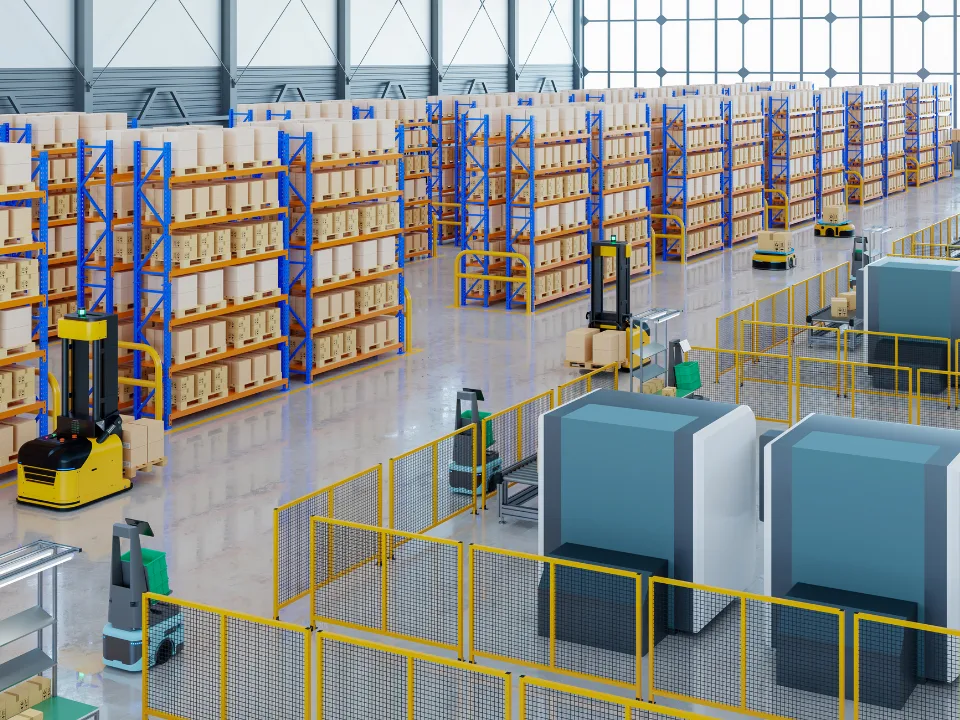- Atlanta-based startup Stord has acquired Ware2Go, a UPS subsidiary, to enhance its logistics network and better serve e-commerce merchants outside of Amazon’s Prime ecosystem.
- The deal adds 2.5M SF of fulfillment space to Stord’s existing logistics footprint, boosting its network to 13 owned facilities and 70 global partner sites.
- Stord plans to offer smaller brands Amazon-like logistics capabilities, including fast checkout and delivery services, while leveraging ongoing partnerships with UPS.
New Competition Emerges
Stord, a fast-growing logistics startup, is making a bold play to rival Amazon’s grip on e-commerce fulfillment, reports Bisnow. The company has acquired Ware2Go, a UPS subsidiary, significantly expanding its reach and service capabilities for third-party merchants.
What’s Included In The Deal
The Ware2Go acquisition brings Stord’s total logistics footprint to more than 2.5M SF of new fulfillment space, adding to its 13 North American and European facilities and a broader network of 70 partner sites. The financial terms of the acquisition weren’t disclosed.
Get Smarter about what matters in CRE
Stay ahead of trends in commercial real estate with CRE Daily – the free newsletter delivering everything you need to start your day in just 5-minutes
The Bigger Picture
Stord CEO and founder Sean Henry says the move is aimed at giving small and midsize e-commerce sellers access to Amazon-level logistics. “The hardest problem for all these independent merchants…is really scale,” Henry said. “You need a lot of inventory and a lot of packages near your customers to deliver at Prime-like speed.”
Logistics Disruption As Opportunity
Despite global shipping and trade uncertainties, Henry believes market disruptions push more volume to Stord’s platform. The startup’s flexible, tech-driven logistics infrastructure can help merchants respond more nimbly to volatility in global supply chains.
Growth Through Acquisition
This isn’t Stord’s first logistics buy. In the past year, the company has acquired ProPack Logistics, Pitney Bowes’ e-commerce fulfillment business, and Fulfillment Works. Henry, drawing on his experience as a Thiel Fellow, is driving a strategy focused on integrating logistics technology with physical infrastructure.
Context Matters
The acquisition comes as UPS is in the middle of its own restructuring, cutting 20K jobs and closing dozens of facilities. Earlier this year, the company also reduced its low-margin parcel business with Amazon by 50%.
Amazon’s Response
Amazon, meanwhile, is doubling down. The company is investing $4B to expand rural delivery operations, aiming to deliver an additional 1B packages annually across 13K ZIP codes.
Why It Matters
The logistics war for e-commerce dominance is intensifying. As Amazon continues to scale its network, competitors like Stord are betting that alternative fulfillment models—especially ones backed by legacy carriers like UPS—can chip away at Amazon’s lead.
What’s Next
As demand for diversified, fast logistics continues to grow, we can expect even more consolidation and innovation in the fulfillment space. Moreover, for smaller merchants, the appeal of Amazon alternatives that offer Prime-like service is steadily increasing. As a result, Stord is seizing the opportunity by delivering scalable, tech-enabled logistics solutions to meet rising demand.


















